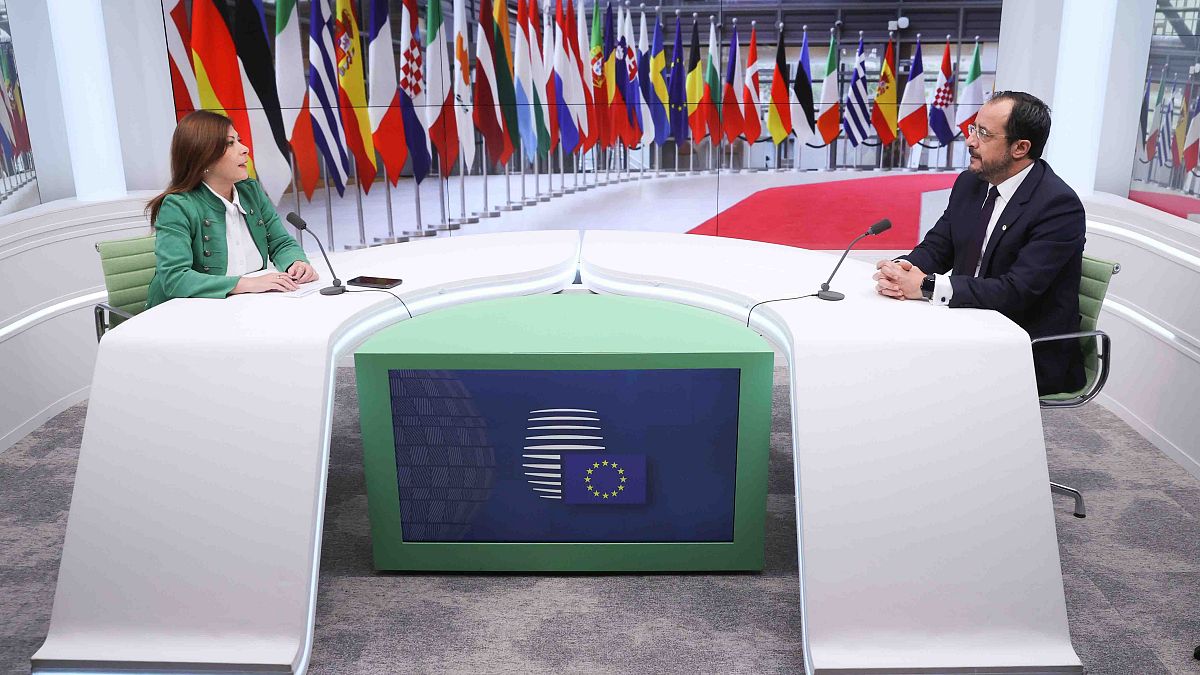Cypriot President Christodoulides calls for more migration agreements with third countries and seeks to normalise relations with Syria, while stressing the need to invest in infrastructure to enable the return of Syrians.
President Nicos Christodoulides of Cyprus voiced support for establishing more strategic agreements with third countries to address migration issues.
Speaking to Euronews, the Cypriot president argued that the EU’s agreement with Lebanon has delivered results. The agreement allocated economic aid to Beirut in exchange for cooperation in curbing illegal immigration to Europe.
Christodoulides said he is now ready to discuss other possible solutions including return hubs.
“We are ready to look at all options outside the box. But options that are also in line with international humanitarian law,” he said.
According to Christodoulides, the UNHCR should be with the Cypriot government to ensure that what is being done is “within the box and always within the framework of international legitimacy”.
Cyprus is one of the first EU countries to push for the normalisation of relations with Syria in order to facilitate the return of migrants. Since the 2011 civil war, many refugees who fled to Lebanon have attempted to reach Cyprus, located just off its shores.
But the Cypriot president is setting some necessary conditions.
“I’m not talking about the Assad regime where our positions are common. But that cannot prevent us from discussing the possibility of Syrians returning to their country,” said the president.
“For these people to return there has to be infrastructure, if there are no hospitals, if there are no schools, no roads, these people cannot return.”
Efforts to resume talks with the Turkish side
Christodoulides spoke to Euronews just hours after he held a trilateral meeting with UN Secretary-General António Guterres and Turkish Cypriot leader Ersin Tatar, aimed at restarting negotiations on Cyprus, seven years after talks in Crans-Montana ended without a peace and reunification agreement.
“If we have a state that cannot function internally, it will not be able to function when it comes to Brussels, with many of the cases even creating a problem in Brussels,” he said, explaining why this issue remains crucial for the EU.
He also hinted that it is in both the EU’s and Cyprus’ interest for the talks to continue and for progress to be made, adding, “The common EU position is that we all want to see progress in Euro-Turkish relations. This progress also depends on resolving the Cyprus problem.”
Cyprus remains divided after Turkey’s invasion in 1974 and a coup d’etat.

